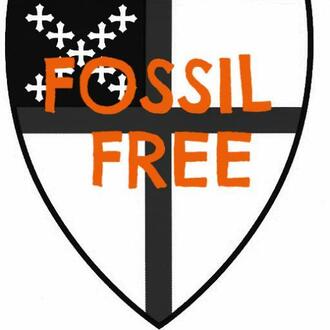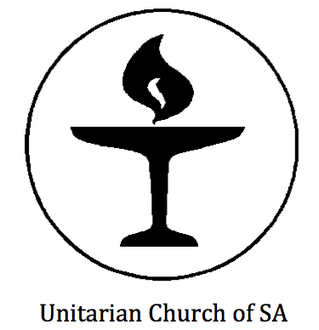-
Kein Geld für Kohle, Öl und Gas - Erzbistum Freiburg soll Fossil Free werdenKohle-, Öl- und Gasunternehmen treiben die Klimakrise weiter voran und behindern seit Jahrzehnten Klimaschutzmaßnahmen. Es ist Zeit, dass unsere Institutionen Stellung beziehen und ihre Gelder aus fossilen Brennstoffen abziehen. Wir dürfen kaum noch fossile Brennstoffe verbrennen, damit sich die Erde, wie von den Regierungen im Pariser Klimaschutzabkommen vereinbart, nicht um mehr als 1,5 °C erwärmt. Wenn die derzeit bestehenden Kohle-, Öl- und Gasprojekte nicht frühzeitig beendet werden, werden die Temperaturen weltweit aufgrund der Emissionen um über 2 °C ansteigen. Das bedeutet, dass es keine neuen fossilen Brennstoffprojekte mehr geben darf und wir laufende Projekte stoppen müssen. Hunderte Glaubensgemeinschaften, Konfessionen und religiöse Einrichtungen weltweit engagieren sich im Bereich Klimaschutz und viele gehen Divestment-Verpflichtungen ein. Auch in Deutschland wird es Zeit, dass die Kirchen ihr Geld aus Firmen abziehen, die ihren Umsatz mit der Förderung fossiler Energieträger machen. Dass Kohle, Öl und Gas ersetzt werden müssen, sagt auch Papst Franziskus: „Wir wissen, dass die Technologie, die auf den sehr umweltschädlichen fossilen Brennstoffen – vor allem von Kohle, aber auch von Erdöl und…Gas – basiert, fortschreitend und unverzüglich ersetzt werden muss” (Papst Franziskus, Laudato Si, 165) Institutionen, die weiterhin in fossile Brennstoffe investieren, setzen öffentliche Gelder einem enormen finanziellen Risiko aus und unterstützen eine Branche, die aktiv Klimaschutzmaßnahmen behindert. Sie sollten stattdessen lieber den Ausstieg aus fossilen Brennstoffen unterstützen und in Technologien investieren, die eine emissionsfreie Energieversorgung ermöglichen.789 of 800 SignaturesCreated by Tamara Nausner
-
Divest From Fossil FuelsIf it’s wrong to wreck the planet, then it’s wrong to profit from that wreckage. The movement to divest from fossil fuels has always hinged on a fundamentally moral argument: Investment in the fossil fuel industry is wrong. Climate change is unjust. These are precepts that Christians and non-Christians alike can agree on. In the past two years, hundreds of universities, cities, and faith communities have rallied around the idea of fossil fuel divestment, calling on institutions to align their investments with their moral principles and send a clear symbolic message: The actions of this industry are incompatible with a liveable planet, and we are taking a stand against it.6 of 100 SignaturesCreated by William Leder
-
Divest Archdiocese of Chicago From Fossil FuelsIf it is wrong to wreck the planet, then it is also wrong to profit from that wreckage. The movement to divest from fossil fuels has always hinged on a fundamentally moral argument: Investment in the fossil fuel industry is wrong. Climate change is unjust. These are precepts that Christians and non-Christians alike can agree on. In the past two years, hundreds of universities, cities, and faith communities have rallied around the idea of fossil fuel divestment, calling on institutions to align their investments with their moral principles and send a clear symbolic message: The actions of this industry are incompatible with a livable planet, and we are taking a stand against it. If the goal of Cardinal Cupich's "Renew My Church" initiative is to make Chicagoland parishes more vital and sustainable, then divestment from fossil fuels must be included in the conversation and action plans.8 of 100 SignaturesCreated by Evan Snyder
-
Chico Community Church: Divest from Fossil Fuels!The Bible states that "the world and all it contains" are God's. (Psalm 89 v 11) Thus, it seems immoral that some people will use the world as a tool to exploit for their own profit and to satisfy their greed. If we believe God created the world, and we are to be good caretakers of His planet, them we cannot offer monetary assistance to any persons seeking to continue exacerbating mankind's current unsustainable lifestyle.8 of 100 SignaturesCreated by Kenneth Richards
-
Create a Jewish Fossil free Jewish CommunityEven as extreme weather events like Hurricane Sandy, floods, droughts and fires threaten to overwhelm local budgets, government action to solve the global climate crisis is all but stalled. We have the solutions, but we won’t see any political progress on the issue until we can weaken the power of the fossil fuel industry. Signatories to the Jewish Climate Covenant have agreed to take action across our communities to support global efforts to tackle climate change. We stand with those calling for strident and just global measures to limit global average temperatures to a 1.5 degree rise by the end of the century. To achieve this, we know that over 80% of fossil fuels must be kept in the ground. We hope such action will protect the poorest and those most vulnerable to the impacts of global environmental change. To that end we urge Jewish synagogues, charities and companies to adopt socially and environmentally responsible investment practices in line with the prophetic traditions of supporting the weak, protecting the land we live on and Tikkun Olam. This includes an investment portfolio that explicitly excludes fossil fuels . We have a responsibility to not profit from an industry that’s destroying our future, impoverishing people around the world and undermining the good work of Jewish people of faith around the world. The bottom line is this: moving money away from fossil fuels is the only moral choice for institutions that care about the planet and its residents. It's time we realise that action to prevent climate change is not an option, but a crucial part of our religious duty as Jews.9 of 100 SignaturesCreated by Oil Vay
-
Divest the Episcopal Church from Fossil Fuels"It is wrong to profit from wrecking the planet." - Bill McKibben, founder of 350.org The Episcopal Church must stand behind its marks of mission and be a part of the solution and not continue to support companies that contribute to climate change. The global crisis of climate change requires immediate action. We cannot address global poverty without also addressing environmental degradation caused by increasing carbon dioxide levels. Without any alternative options for energy, we in the Episcopal Church are all complicit, but unless we invest in renewable sources of energy, we will be forever in the situation of having to more so by supporting a company with our investments. The influence and size of the Episcopal Church makes it a prime candidate to be a leader in the domestic and global environmental movements. Let's follow the lead of the Anglican Church and divest from fossil fuels!13 of 100 SignaturesCreated by Perry Hodgkins Jones
-
Divest from Fossil Fuels: Unitarian Church of South AustraliaIn the interest of integrity, our Church's shareholdings need to be consistent with our principles. With climate change threatening our planet so severely, continuing to profit from the production of fossil fuels is inconsistent with our commitment to "respect the interdependent web of all existence" (our 7th principle). Given the devastating impact climate change is predicted to have on communities, particularly the poorest, profiting from fossil fuels is also arguably inconsistent with our 1st Principle - the inherent worth and dignity of every person; our 2nd Principle - justice, equity and compassion in human relations; and our 6th Principle - the goal of world community with peace, liberty, and justice for all. In addition, there are strong financial arguments for divestment given that the pace at which the world is moving towards renewables leaves question marks over the long term prospects of fossil fuel producing companies.14 of 100 SignaturesCreated by David Freesmith
-
Disinvest the Church of England from fossil fuels1. Climate change is becoming an ever more urgent issue, with increasingly severe impacts on our sisters and brothers around the world. Experts estimate that one person every second is displaced by climate or weather-related disasters. According to the Lancet, the number of weather-related disasters has increased by 46% since the year 2000. 2. Churches have a duty to ensure that their investments do not compromise the ethical position of their institutions. It is deeply uncomfortable for the Church to continue to invest in fossil fuels, which are causing the very harm it seeks to alleviate. 3. The Church of England invests more than £190 million in fossil fuel companies, despite the increasing financial risks of fossil fuel investments. A Carbon Tracker report published in 2017 found that five out of six major oil and gas companies were risking more than 30% of investments on projects that will never be pursued if global average temperature rises are limited to 2 degrees Celsius. 4. At Shell's AGM in May 2018, 95% of shareholders rejected a resolution calling on the company to set stronger emissions targets in line with the Paris Agreement goals. ExxonMobil blocked a resolution on climate change from being considered at its 2018 AGM. It is clear that engagement with fossil fuel companies isn't working. 5. The vast majority of known fossil fuel reserves must remain in the ground if we are to have any chance of meeting the Paris Agreement targets. The reserves in currently operating oil and gas fields alone would take the world beyond 1.5 degrees Celsius of warming. 6. The Church of England has made commitments to address climate change and reduce its overall carbon footprint. This commitment must be extended to how funds are invested. The Church has a unique opportunity to demonstrate leadership on this issue and to influence the public debate on the ethics of continuing to invest in fossil fuels. For more information about Operation Noah's Bright Now campaign, please visit www.brightnow.org.uk6,787 of 7,000 SignaturesCreated by Operation Noah
-
Divest the Church of Scotland from Fossil FuelsAs Christians we have a commitment to justice for the poor who are already suffering the worst effects of climate change and have done little to cause it. More frequent and intense hurricanes and flooding, longer and more frequent droughts and sea-level rise is already a reality that millions face across the globe, especially in the developing world. Climate changing is having a negative impact of food security leading to famine and conflict. In addition to the thousands of fatalities caused by these climate disasters many more people are forced from their homes. We accept the science that climate change is being driven by human emissions of greenhouse gases such as carbon dioxide. We acknowledge that this is primarily caused by the burning of fossil fuels. We accept, as has been internationally agreed, global temperature rise is should be limited to less than 2.C to avert the worst impacts of climate change. The Fossil fuel companies have five times more coal, oil and gas in their reserves than we can safely burn and stay below 2.C global temperature rise. If no action is taken then these reserves will be burnt and the resulting climate change will be catastrophic. We must keep the oil in the soil, the coal in the hole and the gas beneath the grass. The church should take a moral stand and withdraw its investment from the fossil fuel industry. Through their contribution to climate change, oil spills, air pollution (causing thousands of deaths a year) and destruction of ecosystems the fossil fuel companies have lost their social license to operate.289 of 300 SignaturesCreated by Benjamin Kurzman
-
Divest the Unitarian Universalist Association's Common Endowment FundThe Unitarian Universalist Association is a leader in climate justice. This year, the final divestment report will be given at the General Assembly online this June 24-28. This was the resolution: Delegates at the 2014 General Assembly (GA) of the Unitarian Universalist Association (UUA) meeting in Providence, RI, today passed a resolution calling for divestment from fossil fuel companies in the UUA Common Endowment Fund (UUCEF). The resolution requires the UUA to: Cease purchasing securities of CT200 companies as UUCEF investments immediately. Continue to divest its UUCEF holdings of directly held securities of CT200 companies, reaching full divestment of these companies within five years. Work with its current and prospective pooled-asset managers for the purpose of creating more fossil fuel-free investment opportunities, with the objective of full divestment of UUCEF indirect holdings in CT200 companies within five years. Invest an appropriate share of UUCEF holdings in securities that will support a swift transition to a clean energy economy, such as renewable energy and energy efficiency-related securities. Report, via the UUA President and the Treasurer, to each General Assembly from 2015 through 2019 on our Association’s progress on the above resolutions.787 of 800 SignaturesCreated by Vincent Pawlowski

-
Saint Joseph Health Fossil Fuel DivestmentFossil fuels threaten the future of our planet and pollute the air, causing hundreds of thousands of cases of childhood asthma and killing tens of thousands of Americans each year. The industry spends billions to prevent adoption of policies for clean energy and clean air. Hospitals and health systems should draw the line and refuse to profit from or lend their financial support for these destructive practices. Divestment by healing institutions helps develop the social consensus that this must stop and weaken the political power of Big Oil.823 of 1,000 SignaturesCreated by Wendy Ring
-
SUPPORT OUR OPPOSITION OF Nickel Sulfide Mining in MinnesotaThe first of new mining proposals PolyMet Mining will destroy 1,000's of acres of wetlands2 of 100 SignaturesCreated by Fernando Manakaja











